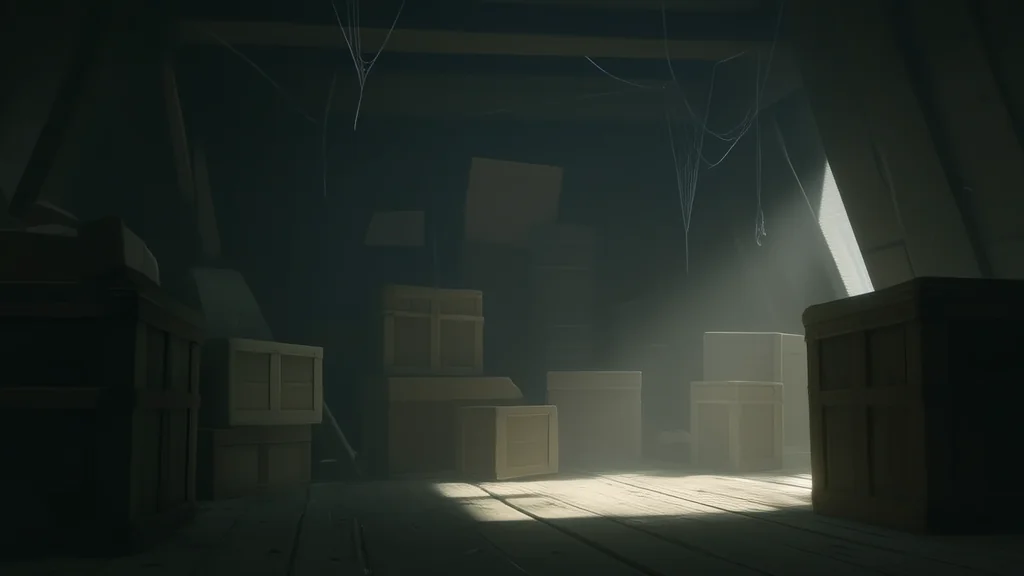🔮 Weird Tales & Urban Legends
The Whispering House and the Journal That Shouldn't Exist

The first time it happened, Clara was in the attic of her grandmother’s old house, sorting through dusty boxes of forgotten relics. The air smelled of mildew and memory. She had always felt something strange about this place—like the walls whispered when no one was listening. But that day, as she reached for a yellowed journal, the floor beneath her shifted slightly, as if the house itself had exhaled.
She didn’t think much of it at first. It was probably just the creaking wood. But then, the room changed. The light from the single window dimmed, and the shadows stretched unnaturally across the floorboards. The dust motes in the air began to swirl in slow, deliberate patterns, forming shapes that weren’t there before. A door that had never been in the attic now stood slightly ajar, its handle cold to the touch.
Clara hesitated, then stepped through.
On the other side, she found herself in a hallway that looked exactly like the one in her grandmother’s house—but different. The wallpaper was a deeper shade of green, and the floorboards were darker, worn by time she couldn’t explain. The silence here was heavier, almost alive. She could hear her own breath echoing faintly, as if the space was holding its breath with her.
At the end of the hallway, a mirror stood alone, framed in silver and cracked along the edges. As she approached, she saw not her reflection, but another version of herself—older, wearing a dress she didn’t recognize, eyes filled with a quiet sorrow. The woman in the mirror didn’t blink. She only stared back, as if waiting for Clara to understand something.
Clara turned away, heart pounding. When she looked back, the mirror was gone, replaced by a wall of bookshelves. The books were all titles she had never heard of, their spines embossed with symbols that seemed to shift when she wasn’t looking directly at them. One book, bound in black leather, caught her eye. The title was written in a language that felt familiar, though she couldn’t name it.
She opened it, and the pages turned on their own, revealing a story that wasn’t hers. It spoke of a girl who lived in a world where time folded upon itself, where every decision created a new path, and where the boundary between self and other blurred like smoke. The final line read: *“You are not the first. You will not be the last.”*
A sudden rush of wind swept through the hallway, and the house groaned as if waking from a long sleep. Clara stumbled backward, tripping over the threshold. The attic was back to normal—except for the journal in her hands, which now had her name written in a different hand, and a date that hadn’t happened yet.
Over the following weeks, Clara found herself returning to the attic whenever the moon was high. Each time, the door appeared again, leading to different versions of the same house. In one, the walls were covered in portraits of people who looked like her. In another, the mirrors showed faces she had never seen but somehow knew. The books changed too, each offering a different story, a different warning.
One night, she found a key hidden inside the journal. It was small, made of a metal that shimmered like liquid silver. She tried it in the door, and it fit perfectly. When she turned it, the door opened not into the attic, but into a vast, empty room with a ceiling that stretched endlessly upward. The floor was smooth and dark, reflecting the stars above, though there were no windows.
In the center of the room stood a figure, cloaked in shadows. It didn’t speak, but Clara felt its presence like a weight pressing against her thoughts. The figure extended a hand, and in it, she saw a flickering image—a version of herself standing at the edge of a cliff, staring into an abyss. The image blinked, and the figure disappeared.
Clara ran back to the attic, slamming the door behind her. The journal was gone, the key too. But the feeling remained—that she had touched something vast and unknowable, something that had always been there, just beyond the edge of her perception.
Now, whenever she closes her eyes, she hears whispers. Not words, but impressions—of lives she might have lived, of choices she might have made. And sometimes, in the corner of her vision, she sees a reflection that isn’t her own, watching, waiting.
She doesn’t know if she’ll ever find the door again. But she knows one thing for certain: the worlds are out there, and they’re watching her.
Published on en
🔗
Related Sites
- AI Blog — AI trends and tech news